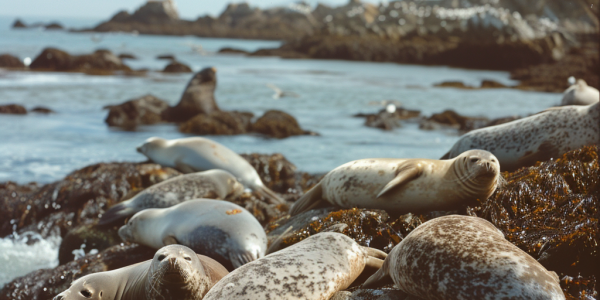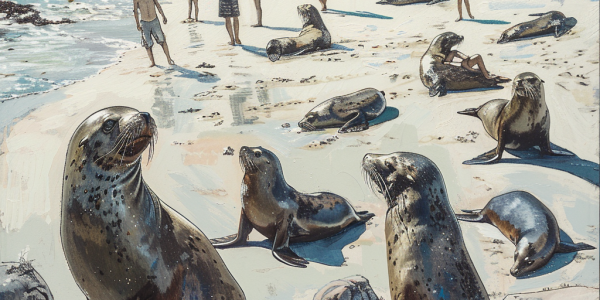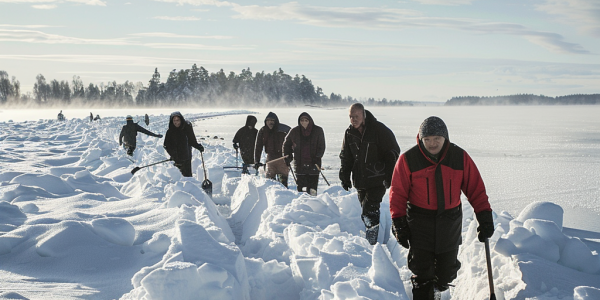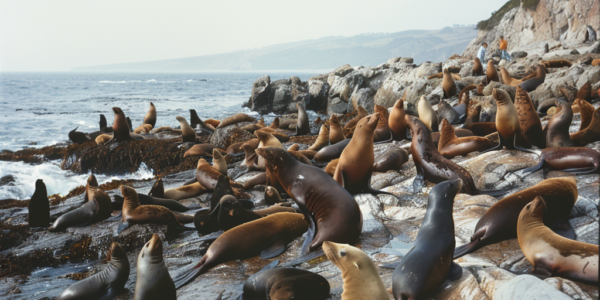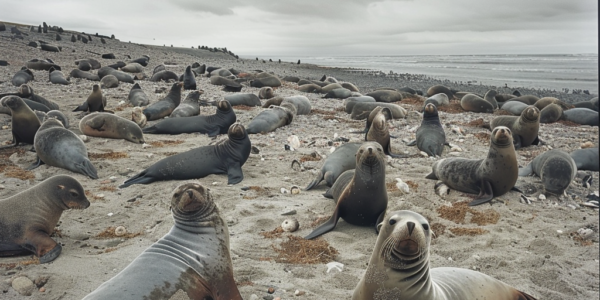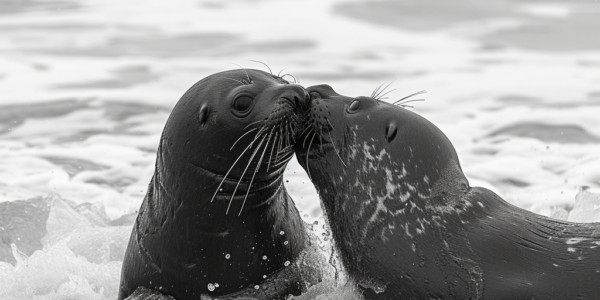Rabies Outbreak Among Seals Sparks Urgent Warnings for Coastal Visitors
A rabies outbreak among seals has raised urgent warnings for coastal visitors and wildlife enthusiasts. Researchers emphasize the need for caution, advising the public to maintain a safe distance from seals to prevent potential transmission of the disease. This outbreak highlights the importance of wildlife safety and the delicate balance between human activity and marine ecosystems. Stay informed about local advisories and support conservation efforts to protect both seals and their habitats.
Rabies Outbreak Among Cape Fur Seals Raises Alarm in Cape Town
A rabies outbreak among Cape fur seals in Cape Town has raised alarms among beachgoers and surfers. With 11 seals testing positive for the virus, authorities warn of aggressive behaviors and potential human transmission. Health officials urge caution during coastal activities as the interconnectedness of wildlife and human health becomes a pressing concern.
Volunteers Build Artificial Snowdrifts to Protect Endangered Seal Pups
Discover how volunteers in Finland are protecting endangered Saimaa ringed seals from the impacts of climate change by building artificial snowdrifts along Lake Saimaa. Led by hydrobiologist Jari Ilmonen, these dedicated individuals are creating essential shelters for seal pups in a changing environment. Learn how these innovative conservation efforts have helped the seal population rebound and provide hope for the future of this fragile ecosystem.
Bird Flu Outbreak Causing Deaths of Thousands of Seals and Sea Lions Worldwide
An ongoing bird flu outbreak has led to the deaths of tens of thousands of seals and sea lions worldwide, causing economic losses at poultry farms and harming wild birds. The outbreak, which began in 2020, has resulted in the deaths of millions of domesticated birds and wildlife populations. While health officials do not consider the virus a threat to humans, experts have cautioned that the continued spread of bird flu could elevate the risks to humans. Researchers have observed the impact of the virus on seals and sea lions in various regions, including the northeastern state of Maine and the South American nations of Chile and Peru. The high death rates in South America have been attributed to the virus spreading rapidly among susceptible animals and species. The impact of the bird flu outbreak on the world’s seal population is a growing concern, with scientists working to understand and address the spread of the virus to protect these vulnerable marine mammals.
Bird Flu Outbreak Causing Mass Deaths in Seals and Sea Lions
An ongoing bird flu outbreak has led to the deaths of tens of thousands of seals and sea lions, causing significant harm to wildlife populations and economic losses at poultry farms. The outbreak, which began in 2020, has resulted in the deaths of millions of domesticated birds worldwide. While health officials have stated that the virus is not currently a threat to humans, experts have cautioned that its continued spread could elevate the risks to human populations. The virus has been identified in seals on both the eastern and western coasts of the United States, with at least 300 seals succumbing to bird flu in New England and smaller numbers in Washington state’s Puget Sound. South America has also been severely affected, with over 20,000 sea lions perishing in Chile and Peru, along with thousands of elephant seals in Argentina. The virus, which can be controlled in domesticated animals, spreads rapidly among wildlife and ocean mammals.
Male Elephant Seal Displays Unusual Paternal Behavior
Male elephant seals, known for their aggressive behavior, surprised researchers when a male seal rescued a struggling pup from the ocean, displaying unusual paternal instincts. This rare act of compassion defied the typical behavior of male elephant seals during breeding season.

